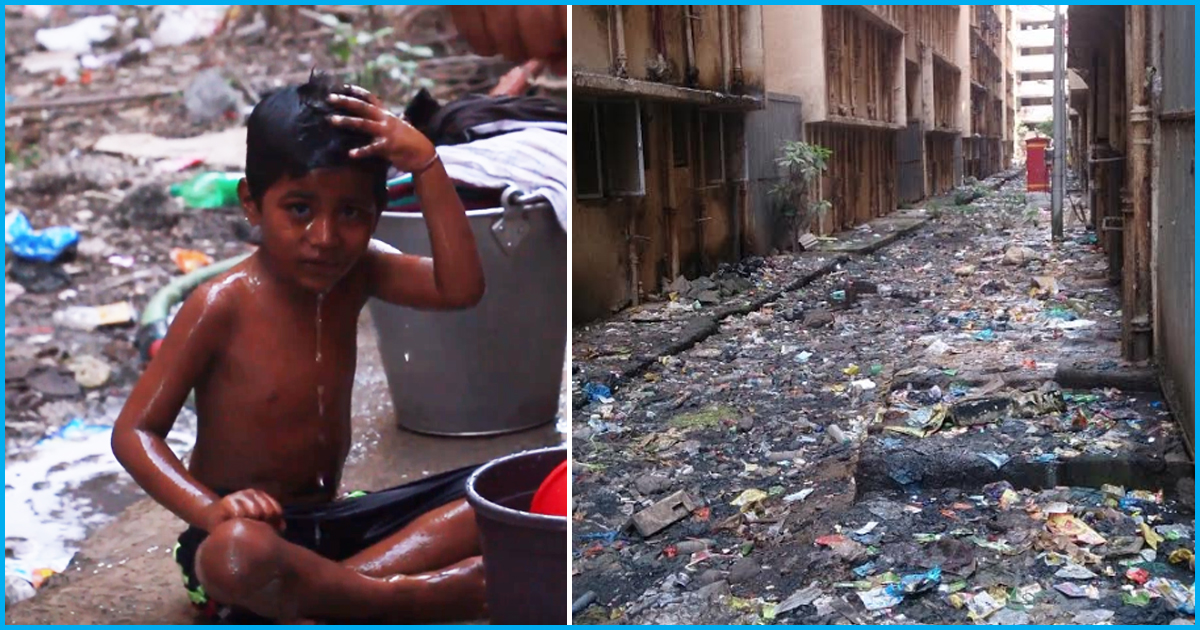Mahul, located on the eastern seafront of Mumbai, is the Maharashtra government’s preferred, and if one goes by its stand in court, only site available for rehabilitating over 11,000 families evicted from either side of the Tansa Pipeline and other places. Despite concerns raised in several quarters regarding the high pollution level in the area and the threat to human life due to the same, the government insists that the area is safe and habitable.
The National Green Tribunal, hearing a 2014 petition filed by residents of Mahul village adjacent to the 72-tower complex where Tansa pipeline evictees are being rehabilitated, held the area unsuitable for human habitation in December 2015. The Bombay High Court also took serious note of the pollution and its impact on the health of rehabilitated families in July 2017. A study by conducted by King Edward Memorial (KEM) Hospital in early 2015 reported a high incidence of respiratory issues in the area and pointed at high levels of Toluene—a volatile organic compound that causes respiratory ailments, among other things—in the atmosphere.
However, in March and April this year, the state government filed two affidavits in the Bombay High Court, stressing that 72-building rehabilitation complex is safe to live in, since pollution levels in the area are well within prescribed limits. A close perusal of the affidavits and related annexures, alongside the NGT judgement of 2015 and conversations with residents of the area, points at several gaps and omissions, and exposes the State’s desperation to make Mahul pass muster as a “rehabilitation site”, endangering the health, livelihoods and lives of the city’s poor.
Apprehensions and concerns
Eversmile Layout in Mahul—the 72-tower rehabilitation complex containing 17,495 tenements that the evictees moved in to—sits less than fifteen metres across the road alongside Bharat Petroleum Corporation Limited’s (BPCL) refinery. The area is home to a large number of industrial units, including the refineries of BPCL, HPCL and IOC. It also has several hazardous chemical industries and thermal power plants, with the Bhaba Atomic Research Centre overlooking it along a section of the sea front.
Concerns over high pollution have held back several PAPs from moving into the tenements, even as those without any other options have trickled in through 2017. The affidavit filed by the state government in Bombay High Court on 16 April 2018 shows that a total of 10,504 tenements have been allotted to various PAPs in Eversmile Layout; this includes 5,862 Tansa pipeline evictees. However, a survey by Collective for Spatial Alternatives in February-March 2018 showed only 4,445 of over 10,000—less than fifty percent—families allotted tenements in the colony had moved in.
For families that did move in, the experience has been harrowing, if not life threatening. Many, particularly women, have nothing but a volley of abuses directed at “the authorities” who sent them to “rot here”.
“We have been dealing with breathing difficulties, heaviness/ congestion in the chest and weakness since the time we moved in,” says Anita More, who moved into the complex after her hutment in Kurla was demolished and her family was rehabilitated in June 2017. A cacophony of voices second her; many talk of the skin irritation and rashes that have now become constant companions. Some complain of severe illnesses, such as hypertension, paralysis and lung-diseases.
The symptoms described by the women match health hazards associated with VOCs, particularly toluene, a study by the Environment Pollution Research Centre (EPRC) of KEM Hospital had found in 2014. The study report, which has been questioned by the state government in its 26 April 2018 affidavit in the HC, recommended “immediately undertaking containment measures for emission of toluene”.
The shift, meanwhile, is taking a heavy toll on the lives of those who have moved in there. Apart from the immense financial strain they’re under on account of lost livelihoods courtesy the shift, residents say many people have lost their lives in the past few months owing to “unlivable conditions”. A writ petition filed in the High Court on behalf of 204 PAPs residing in the colony says 15 people have died since PAPs moved in some months ago.
Threat to health in Mahul: NGT’s 2015 order
In 2014, residents of Mahul and Ambapada villages, located next to the rehabilitation complex, approached the National Green Tribunal (NGT) against Sealord Containers and Aegis Chemicals for allegedly causing pollution.
In its December 2015 judgement pertaining to the application, the NGT did not order the closure of either of the industries since “the contribution of individual source of air pollution in the air quality in the area is not available on record”. The tribunal, however, made several observations on the high levels of pollution, particularly of Volatile organic compounds (VOCs) associated with respiratory ailm…











